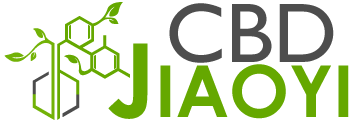Cystic acne is medically also known as nodulocystic acne, which is the most severe type of acne vulgaris. The typical symptoms of this type are deep, inflamed breakouts erupt on the face and different other parts of the body. It is different from normal acne as the blemishes are larger and can be immense painful. This is a serious kind of skin disease where acne blemishes are soft, filled with fluid and feel like lump under the skin. Get detailed information about various types of skin-related problems, on this website: www.bloodchronicles.net
Cystic acne is not age related but common in teenage boys and young men. Some doctors also suggest cystic acne is hereditary and if parents had cystic acne, children more likely to suffer from the same. Other main causes of cystic acne are:
- Excessive secretion from oil glands
- Surplus dead skill cells within the hair follicles
- Propionibacteria acnes is a type of bacteria makes the skin vulnerable to acne
Five ways to treat cystic acne
- The first important point is to differentiate between normal acne and cystic acne. Cystic acne affects deeper under the skin tissue. When skin oil glands get affected, various areas of skin show nodule like structure. You can easily distinguish as this acne feels like small lumps underneath the skin.
- Scarring is another symptom of cystic acne and the lump should not be popped. Don’t be disturbed by the disfiguring condition of the skin. More and more patients are getting back their normal skin type with the help of drugs. Some drugs have side-effects but it is most reliable treatment for this disease.
- Talk to your doctor for a longer-period of treatment. Most often some antibiotics treatment removes the blemishes but it will again erupt. Another reason of taking good antibiotic treatment is because for long-time cystic acne was treated with antibiotic so bacteria have gained a resistance against common antibiotic.
- For women who suffer from this disease can also undergo hormonal therapy. This disease more likely effects on our body hormones that’s why many doctors prescribes contraceptives or anti-androgen medication to stop the bacteria formation. If you really want to go for hormonal treatment research it well and speak to your doctor in length. You may understand that there could be possible side-effects include irregular period, fatigue, restlessness, and breast tenderness.
- Talk to your doctor about oral retinoids such as isotretinoin, which is extremely good in treating cystic acne. This tablet has to continue for six months to one year and it almost magically reduces the visibility of acne blemishes. Some dermatologists believe isotretinoin is the most successful way to treat this type acne problem. You can also use topical retinoids after consulting your doctor. Topical retinoids open the clogged pores and pave way for other topical medication and fight the acne bacteria. Topical medication is not used for simple acne; it is only used for moderate to severe acne problems. Most of the cases initially it makes the problem worse before it actually works on acne. After a few days of application you will see redness, dryness and in some cases peeling appears. Ask your doctor about possible side-effects such as photosensitivity, dryness, redness, and flaking skin. Get detailed information about the skin care methods, on this website: www.breakingbio.org














